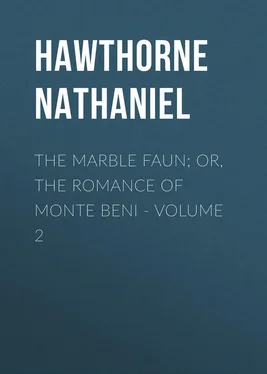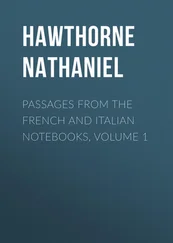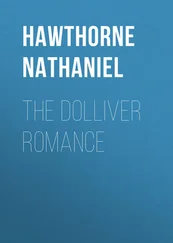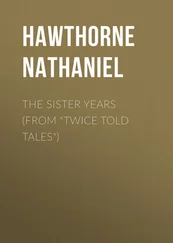Nathaniel Hawthorne - The Marble Faun; Or, The Romance of Monte Beni - Volume 2
Здесь есть возможность читать онлайн «Nathaniel Hawthorne - The Marble Faun; Or, The Romance of Monte Beni - Volume 2» — ознакомительный отрывок электронной книги совершенно бесплатно, а после прочтения отрывка купить полную версию. В некоторых случаях можно слушать аудио, скачать через торрент в формате fb2 и присутствует краткое содержание. Жанр: literature_19, foreign_antique, foreign_prose, на английском языке. Описание произведения, (предисловие) а так же отзывы посетителей доступны на портале библиотеки ЛибКат.
- Название:The Marble Faun; Or, The Romance of Monte Beni - Volume 2
- Автор:
- Жанр:
- Год:неизвестен
- ISBN:нет данных
- Рейтинг книги:3 / 5. Голосов: 1
-
Избранное:Добавить в избранное
- Отзывы:
-
Ваша оценка:
- 60
- 1
- 2
- 3
- 4
- 5
The Marble Faun; Or, The Romance of Monte Beni - Volume 2: краткое содержание, описание и аннотация
Предлагаем к чтению аннотацию, описание, краткое содержание или предисловие (зависит от того, что написал сам автор книги «The Marble Faun; Or, The Romance of Monte Beni - Volume 2»). Если вы не нашли необходимую информацию о книге — напишите в комментариях, мы постараемся отыскать её.
The Marble Faun; Or, The Romance of Monte Beni - Volume 2 — читать онлайн ознакомительный отрывок
Ниже представлен текст книги, разбитый по страницам. Система сохранения места последней прочитанной страницы, позволяет с удобством читать онлайн бесплатно книгу «The Marble Faun; Or, The Romance of Monte Beni - Volume 2», без необходимости каждый раз заново искать на чём Вы остановились. Поставьте закладку, и сможете в любой момент перейти на страницу, на которой закончили чтение.
Интервал:
Закладка:
“I have come slowly along, often lingering, often turning aside,” replied Kenyon; “for I found a great deal to interest me in the mediaeval sculpture hidden away in the churches hereabouts. An artist, whether painter or sculptor, may be pardoned for loitering through such a region. But what a fine old tower! Its tall front is like a page of black letter, taken from the history of the Italian republics.”
“I know little or nothing of its history,” said the Count, glancing upward at the battlements, where he had just been standing. “But I thank my forefathers for building it so high. I like the windy summit better than the world below, and spend much of my time there, nowadays.”
“It is a pity you are not a star-gazer,” observed Kenyon, also looking up. “It is higher than Galileo’s tower, which I saw, a week or two ago, outside of the walls of Florence.”
“A star-gazer? I am one,” replied Donatello. “I sleep in the tower, and often watch very late on the battlements. There is a dismal old staircase to climb, however, before reaching the top, and a succession of dismal chambers, from story to story. Some of them were prison chambers in times past, as old Tomaso will tell you.”
The repugnance intimated in his tone at the idea of this gloomy staircase and these ghostly, dimly lighted rooms, reminded Kenyon of the original Donatello, much more than his present custom of midnight vigils on the battlements.
“I shall be glad to share your watch,” said the guest; “especially by moonlight. The prospect of this broad valley must be very fine. But I was not aware, my friend, that these were your country habits. I have fancied you in a sort of Arcadian life, tasting rich figs, and squeezing the juice out of the sunniest grapes, and sleeping soundly all night, after a day of simple pleasures.”
“I may have known such a life, when I was younger,” answered the Count gravely. “I am not a boy now. Time flies over us, but leaves its shadow behind.”
The sculptor could not but smile at the triteness of the remark, which, nevertheless, had a kind of originality as coming from Donatello. He had thought it out from his own experience, and perhaps considered himself as communicating a new truth to mankind.
They were now advancing up the courtyard; and the long extent of the villa, with its iron-barred lower windows and balconied upper ones, became visible, stretching back towards a grove of trees.
“At some period of your family history,” observed Kenyon, “the Counts of Monte Beni must have led a patriarchal life in this vast house. A great-grandsire and all his descendants might find ample verge here, and with space, too, for each separate brood of little ones to play within its own precincts. Is your present household a large one?”
“Only myself,” answered Donatello, “and Tomaso, who has been butler since my grandfather’s time, and old Stella, who goes sweeping and dusting about the chambers, and Girolamo, the cook, who has but an idle life of it. He shall send you up a chicken forthwith. But, first of all, I must summon one of the contadini from the farmhouse yonder, to take your horse to the stable.”
Accordingly, the young Count shouted again, and with such effect that, after several repetitions of the outcry, an old gray woman protruded her head and a broom-handle from a chamber window; the venerable butler emerged from a recess in the side of the house, where was a well, or reservoir, in which he had been cleansing a small wine cask; and a sunburnt contadino, in his shirt-sleeves, showed himself on the outskirts of the vineyard, with some kind of a farming tool in his hand. Donatello found employment for all these retainers in providing accommodation for his guest and steed, and then ushered the sculptor into the vestibule of the house.
It was a square and lofty entrance-room, which, by the solidity of its construction, might have been an Etruscan tomb, being paved and walled with heavy blocks of stone, and vaulted almost as massively overhead. On two sides there were doors, opening into long suites of anterooms and saloons; on the third side, a stone staircase of spacious breadth, ascending, by dignified degrees and with wide resting-places, to another floor of similar extent. Through one of the doors, which was ajar, Kenyon beheld an almost interminable vista of apartments, opening one beyond the other, and reminding him of the hundred rooms in Blue Beard’s castle, or the countless halls in some palace of the Arabian Nights.
It must have been a numerous family, indeed, that could ever have sufficed to people with human life so large an abode as this, and impart social warmth to such a wide world within doors. The sculptor confessed to himself, that Donatello could allege reason enough for growing melancholy, having only his own personality to vivify it all.
“How a woman’s face would brighten it up!” he ejaculated, not intending to be overheard.
But, glancing at Donatello, he saw a stern and sorrowful look in his eyes, which altered his youthful face as if it had seen thirty years of trouble; and, at the same moment, old Stella showed herself through one of the doorways, as the only representative of her sex at Monte Beni.
CHAPTER XXV
SUNSHINE
“Come,” said the Count, “I see you already find the old house dismal. So do I, indeed! And yet it was a cheerful place in my boyhood. But, you see, in my father’s days (and the same was true of all my endless line of grandfathers, as I have heard), there used to be uncles, aunts, and all manner of kindred, dwelling together as one family. They were a merry and kindly race of people, for the most part, and kept one another’s hearts warm.”
“Two hearts might be enough for warmth,” observed the sculptor, “even in so large a house as this. One solitary heart, it is true, may be apt to shiver a little. But, I trust, my friend, that the genial blood of your race still flows in many veins besides your own?”
“I am the last,” said Donatello gloomily. “They have all vanished from me, since my childhood. Old Tomaso will tell you that the air of Monte Beni is not so favorable to length of days as it used to be. But that is not the secret of the quick extinction of my kindred.”
“Then you are aware of a more satisfactory reason?” suggested Kenyon.
“I thought of one, the other night, while I was gazing at the stars,” answered Donatello; “but, pardon me, I do not mean to tell it. One cause, however, of the longer and healthier life of my forefathers was, that they had many pleasant customs, and means of making themselves glad, and their guests and friends along with them. Nowadays we have but one!”
“And what is that?” asked the sculptor.
“You shall see!” said his young host.
By this time, he had ushered the sculptor into one of the numberless saloons; and, calling for refreshment, old Stella placed a cold fowl upon the table, and quickly followed it with a savory omelet, which Girolamo had lost no time in preparing. She also brought some cherries, plums, and apricots, and a plate full of particularly delicate figs, of last year’s growth. The butler showing his white head at the door, his master beckoned to him. “Tomaso, bring some Sunshine!” said he. The readiest method of obeying this order, one might suppose, would have been to fling wide the green window-blinds, and let the glow of the summer noon into the carefully shaded room. But, at Monte Beni, with provident caution against the wintry days, when there is little sunshine, and the rainy ones, when there is none, it was the hereditary custom to keep their Sunshine stored away in the cellar. Old Tomaso quickly produced some of it in a small, straw-covered flask, out of which he extracted the cork, and inserted a little cotton wool, to absorb the olive oil that kept the precious liquid from the air.
Читать дальшеИнтервал:
Закладка:
Похожие книги на «The Marble Faun; Or, The Romance of Monte Beni - Volume 2»
Представляем Вашему вниманию похожие книги на «The Marble Faun; Or, The Romance of Monte Beni - Volume 2» списком для выбора. Мы отобрали схожую по названию и смыслу литературу в надежде предоставить читателям больше вариантов отыскать новые, интересные, ещё непрочитанные произведения.
Обсуждение, отзывы о книге «The Marble Faun; Or, The Romance of Monte Beni - Volume 2» и просто собственные мнения читателей. Оставьте ваши комментарии, напишите, что Вы думаете о произведении, его смысле или главных героях. Укажите что конкретно понравилось, а что нет, и почему Вы так считаете.












